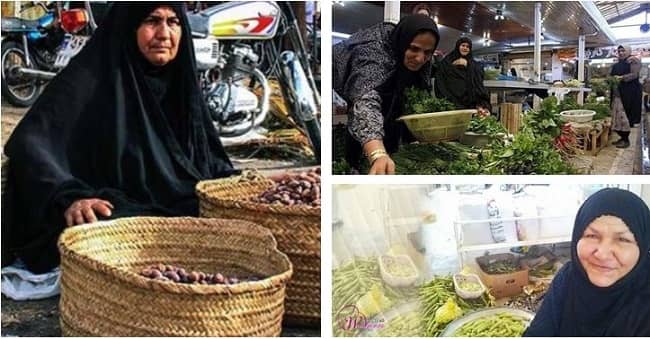The massive increase in the number of female street peddlers in Iran proves that the regime’s plan to empower female heads of households, pitched by the Directorate of Women and Family Affairs, was nothing but a hollow promise that has failed to improve the situation for deprived women.
Last month, the state-run Jam-e Jam Website explained that over 200,000 women were made unemployed last year as direct and indirect results of the Coronavirus pandemic and that some of those became peddlers to make ends meet. This drastically decreased the proportion of economic participation by women and, worse still, there are no statistics on how this affected female peddlers because the regime doesn’t bother to keep track of them.
However, the regime has clearly noted the increase in peddlers, which is why they reinstated a ban on them and increased discrimination against these marginalized individuals, especially in the southern provinces, like Khuzestan and Hormozgan. In places where COVID-19 is more prevalent, markets have closed, and foot traffic is reduced, which means less money coming in for female peddlers.
The Iranian Resistance has gathered the stories of some female peddlers who are also heads of household, and it makes for some upsetting reading.
Naseri, 29, is a mother of two from Ahvaz, who is now struggling to pay the $129 rent for her rundown house and the family is forced to skip meals many days out of the month. She used to sell tablecloths, but following a massive price increase, switched to napkins. The problem is that this doesn’t cover living expenses, so she must go to the garbage dump with her 10-year-old at night to recover plastics and cardboard to sell.
Mother of two Sharifa became the head of her family after her construction worker husband was in an accident at work and became disabled. She sells okra, broad beans, and other vegetables at the Ahvaz market, but the pandemic has dramatically decreased her income with people unwilling to buy vegetables from peddlers.
In a similar vein, Zahra sells fresh seasonal vegetables, including dates, Ziziphus spina-christi, cucumber, and okra, that she grows at home. She sells them at the old Ahvaz bazaar daily, travelling in from Hamidiyeh village, ever since she lost her job as a laborer. Her husband died following an accident in 2019, and she was left alone to raise four children.
Meanwhile, Zubeida sells pumice stones, loofahs, wild rue, and hygienic items in Gorgan, Khuzestan, and actually caught the Coronavirus while working. She couldn’t work for a month but had no government help from her family.
